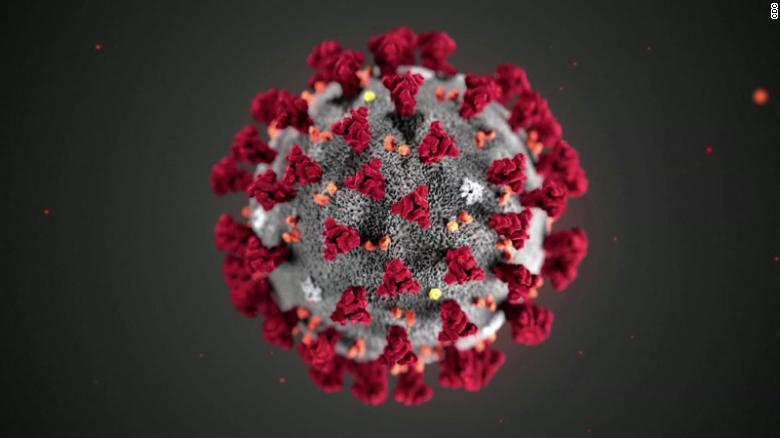Medical professionals are learning more and more every day about the new COVID-19 coronavirus and its capabilities. More than a week into a state of emergency in North Carolina, many people know a few details about COVID-19, but some may still be uncertain about how it spreads or how to protect your health.
Dr. Charlie Monteiro, who is currently on the board of the Durham-Orange County Medical Society, spoke with 97.9 The Hill’s Aaron Keck to provide recent updates about the new virus. He confirmed COVID-19 is not a particularly fatal coronavirus in a broad sense.
“I think the good news is about 80 percent of people who get infected with this do just fine,” said Monteiro. “They have mild symptoms, they might be sick for a week and then they go about their lives. The good news is this isn’t super fatal like the original SARS virus, where it was a very high mortality rate.”
But Monteiro, who is the former president North Carolina Medical Society, said that should not mean people should not be concerned. COVID-19 carries a much higher mortality rate for older generations.
“Above age 80,” he said, “this is a very, very dangerous virus. When you calculate the number of deaths per infections that have been confirmed, the fatality rate is 22 percent for people over 80.”
The real danger of the new coronavirus is how easily it spreads. Health officials confirmed it is transmitted through respiratory droplets and close contact to people can lead to much higher chances of exposure. Monteiro said this is partially due to how long the virus lasts out in the open.
“The virus can have its presence even after the person with the infection leaves,” he said. “It stays in the air for up to three hours and stays on surfaces for up to days. There have been varying numbers presented, but we certainly know it sticks around.”
While many people around North Carolina and the country are struggling to get quick tests to confirm cases, Monteiro said the recent approval of outside sources being able to run tests improves how often responses can be returned.
“Now we are able to send our tests to a lab like LabCorp or Quest and they’ll run the test,” said Monteiro. “The local entities are developing their own tests, that’s been approved. You want people to produce their own tests, as long as it’s accurate.”
Ultimately, Monteiro recommends continuing the practices being broadcast across the United States. Washing your hands often and thoroughly, covering all coughs and sneezes and keeping physical distances from others are main ways to be preventative. He said even those who believe they won’t be affected by catching the virus should still practice public health and keep others in mind.
“Protect those people in your life who are vulnerable to this,” Monteiro said, “and those are the elderly and those are folks who have other medical or co-morbid conditions. The way we can protect them is by having very good hygiene and trying to keep ourselves from getting this illness.”
For those with questions about COVID-19 and how it is affecting county services, Orange County has established a hotline and text service.
Related Stories
‹
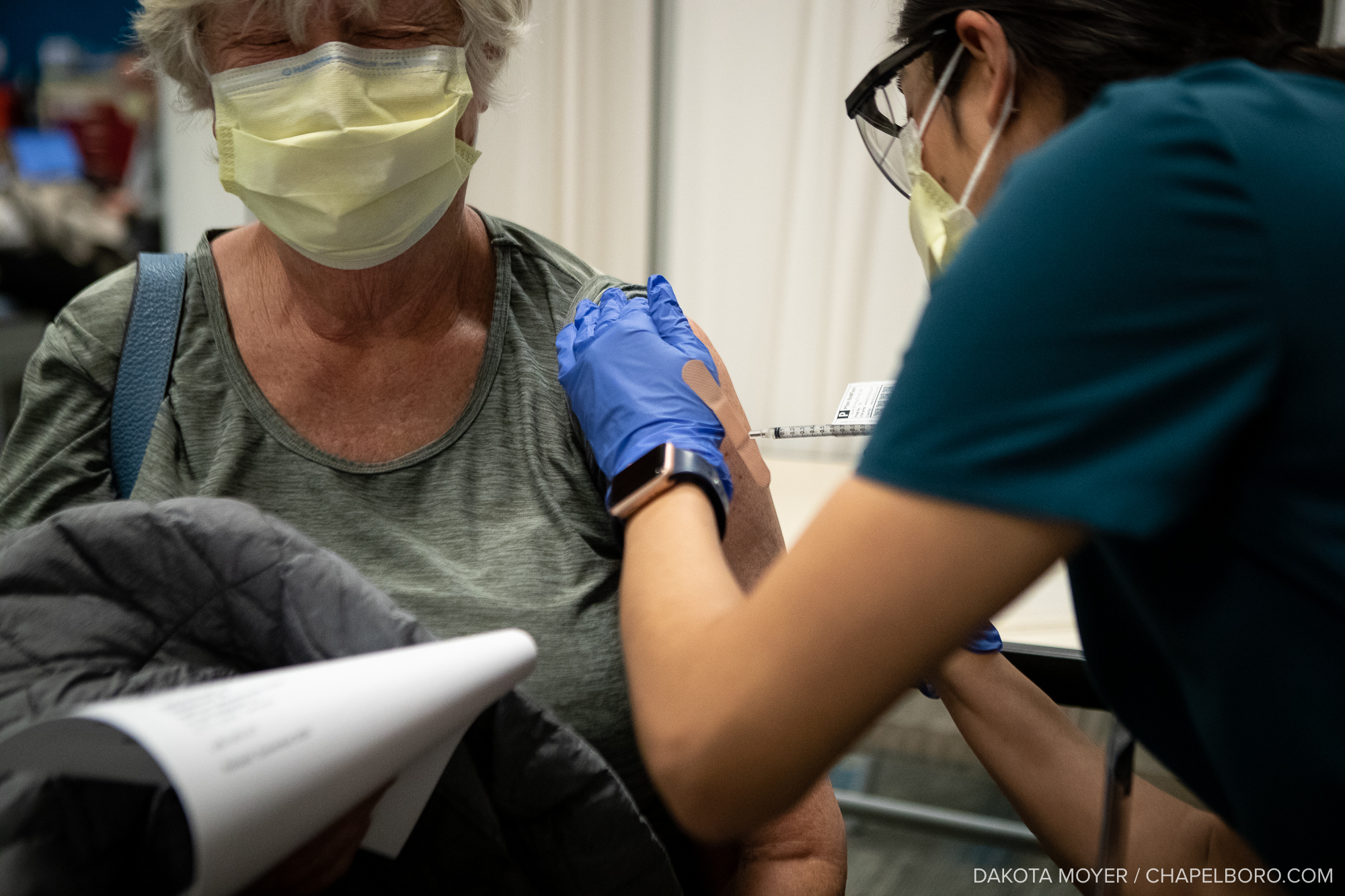
5 Things We Know and Still Don’t Know About COVID, 5 Years After It AppearedCOVID-19 is less deadly than it was in the pandemic’s early days. But the virus is evolving, meaning scientists must track it closely.
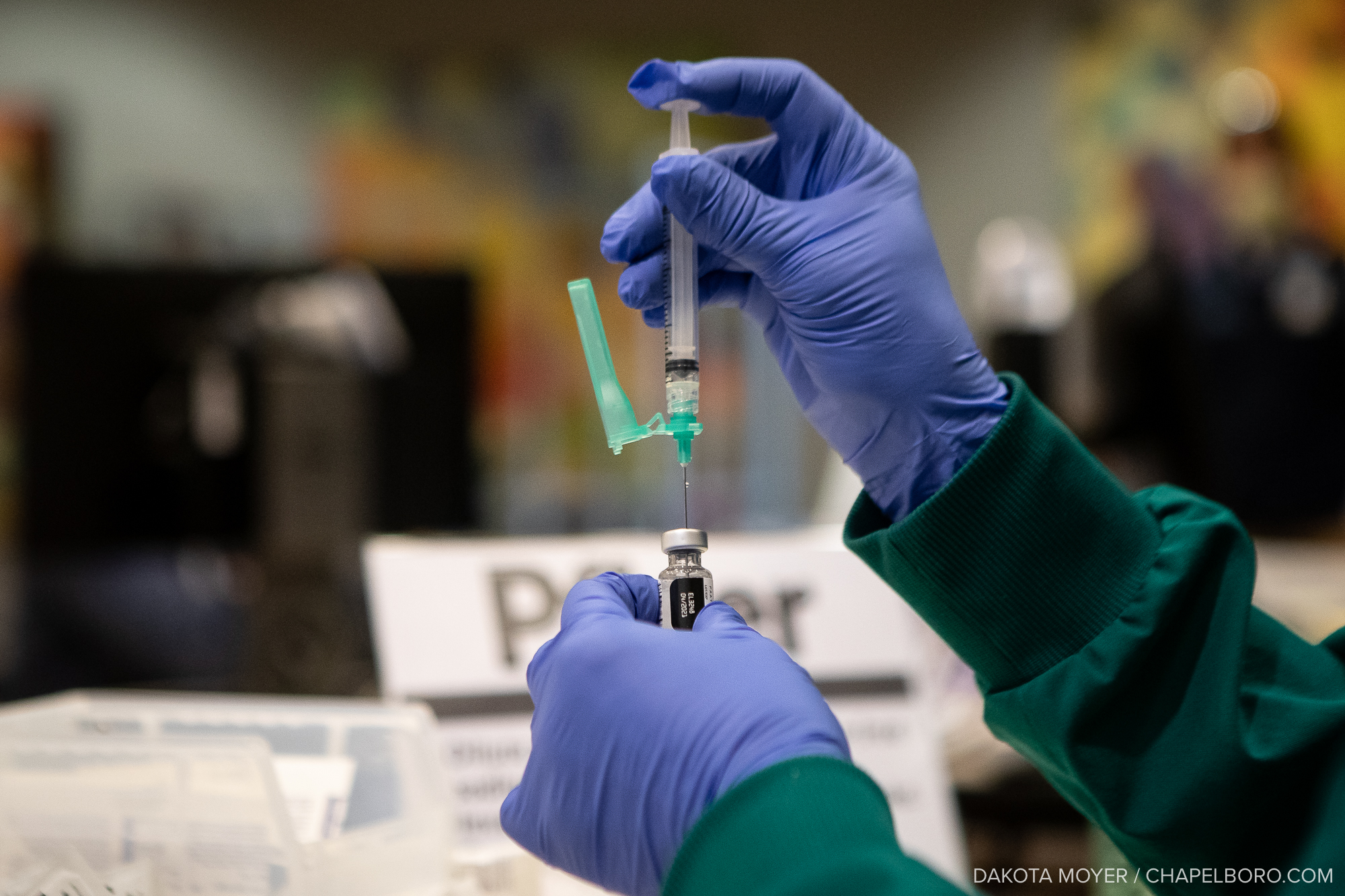
Tracking the Number of Coronavirus Cases in North Carolina 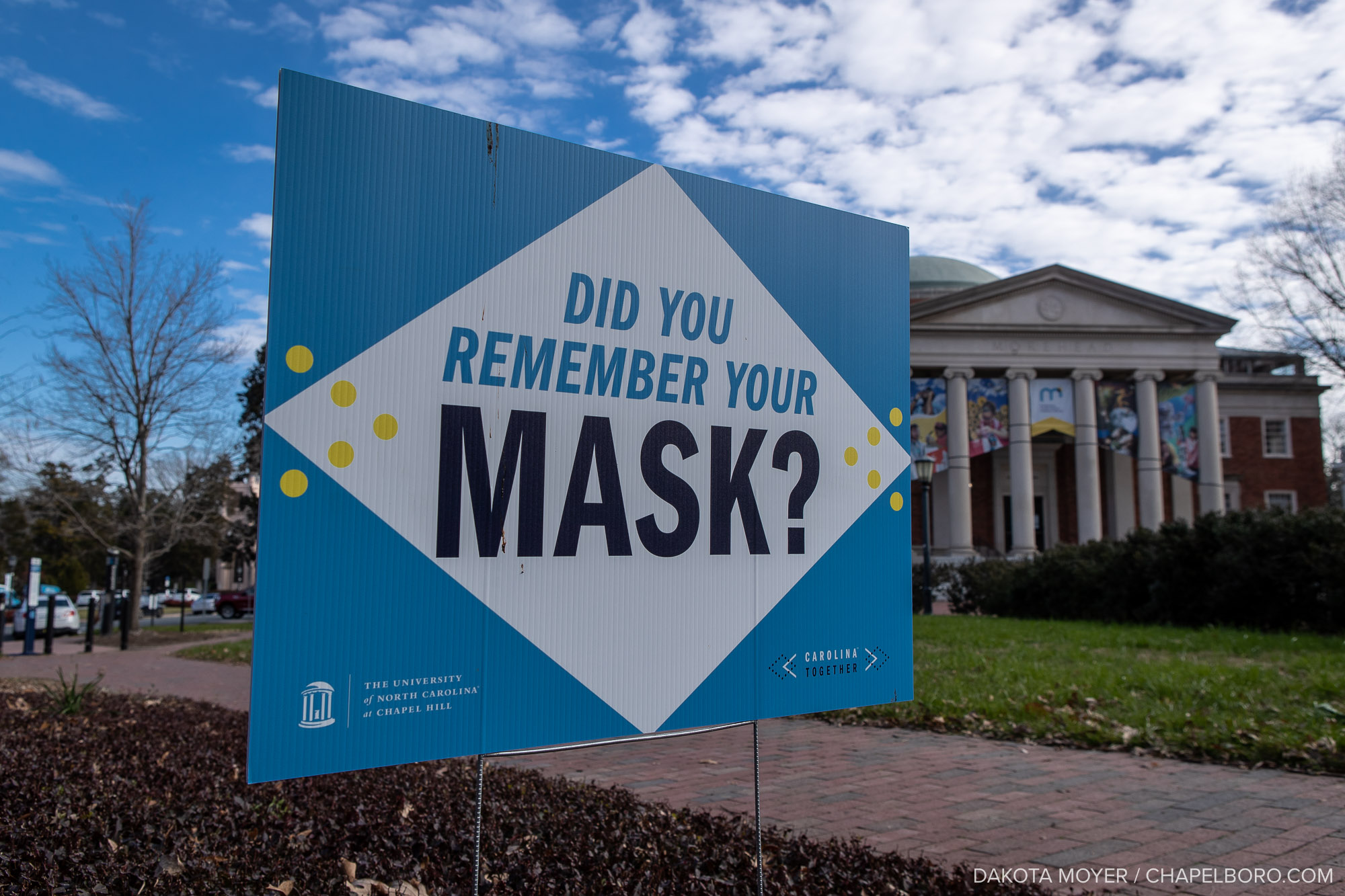
COVID-19 Cluster Reported at UNC's Avery Residence HallUNC has identified a cluster of COVID-19 cases at Avery Residence Hall on campus. This is the second COVID-19 cluster identified at UNC in 2021 and the first since the spring semester began on January 19. Earlier this month, a cluster was identified at Carmichael Residence Hall between students who lived on campus during winter […]

Mack Brown, Roy Williams Receive First Doses of the COVID-19 VaccineUNC coaches Mack Brown and Roy Williams have received their first dose of the COVID-19 vaccine, the university confirmed on Friday. “I think that everyone who has the opportunity to take the vaccination should,” Williams said in a Zoom call with reporters. Brown, 69, and Williams, 70, are eligible to receive the vaccine thanks to […]
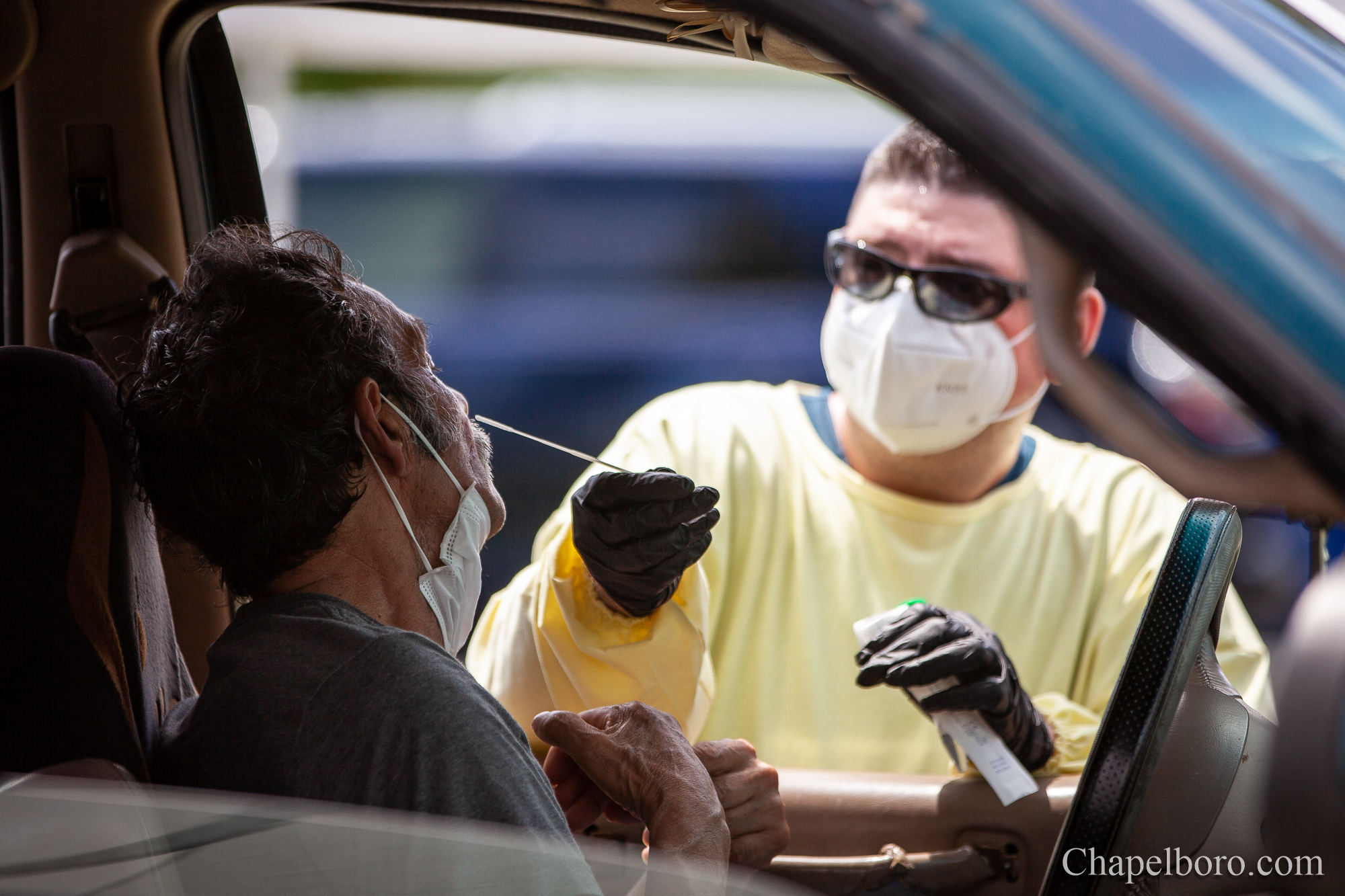
North Carolina Shatters Single-Day Record With 10,000 New COVID-19 CasesNorth Carolina reported 10,398 new coronavirus cases on Thursday, shattering the single-day record for new cases as the state continues to see a significant spread of the virus. North Carolina’s Department of Health and Human Services reports a total of 592,746 coronavirus cases since the beginning of the pandemic. In addition, the state reported 137 […]
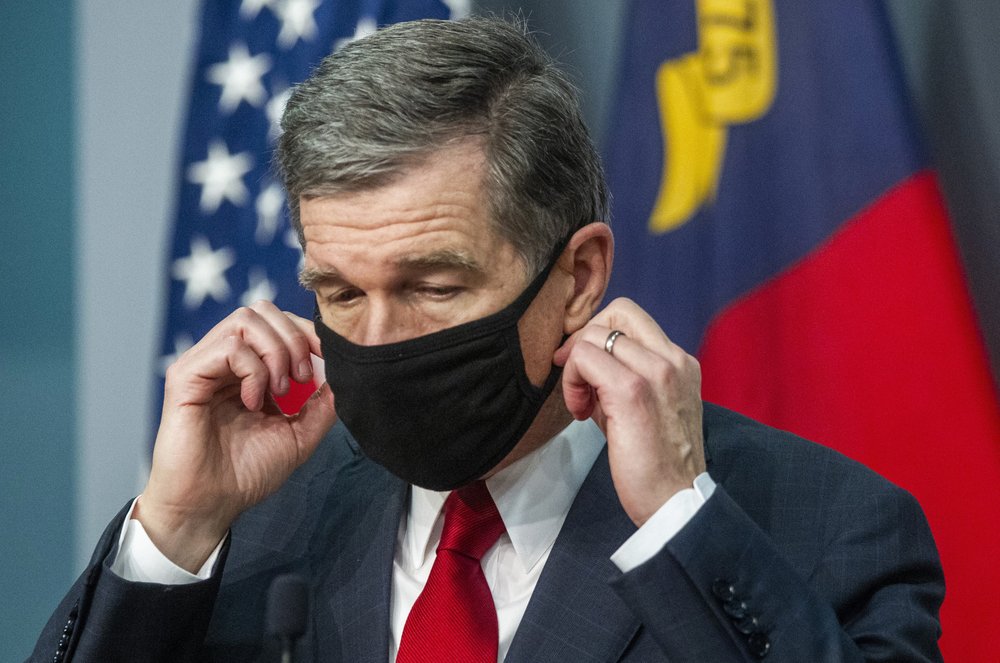
NC Introduces COVID-19 County Alert System Amid Record HospitalizationsGovernor Cooper announced that North Carolina is introducing a county alert system to identify counties with the highest levels of COVID-19 community spread.
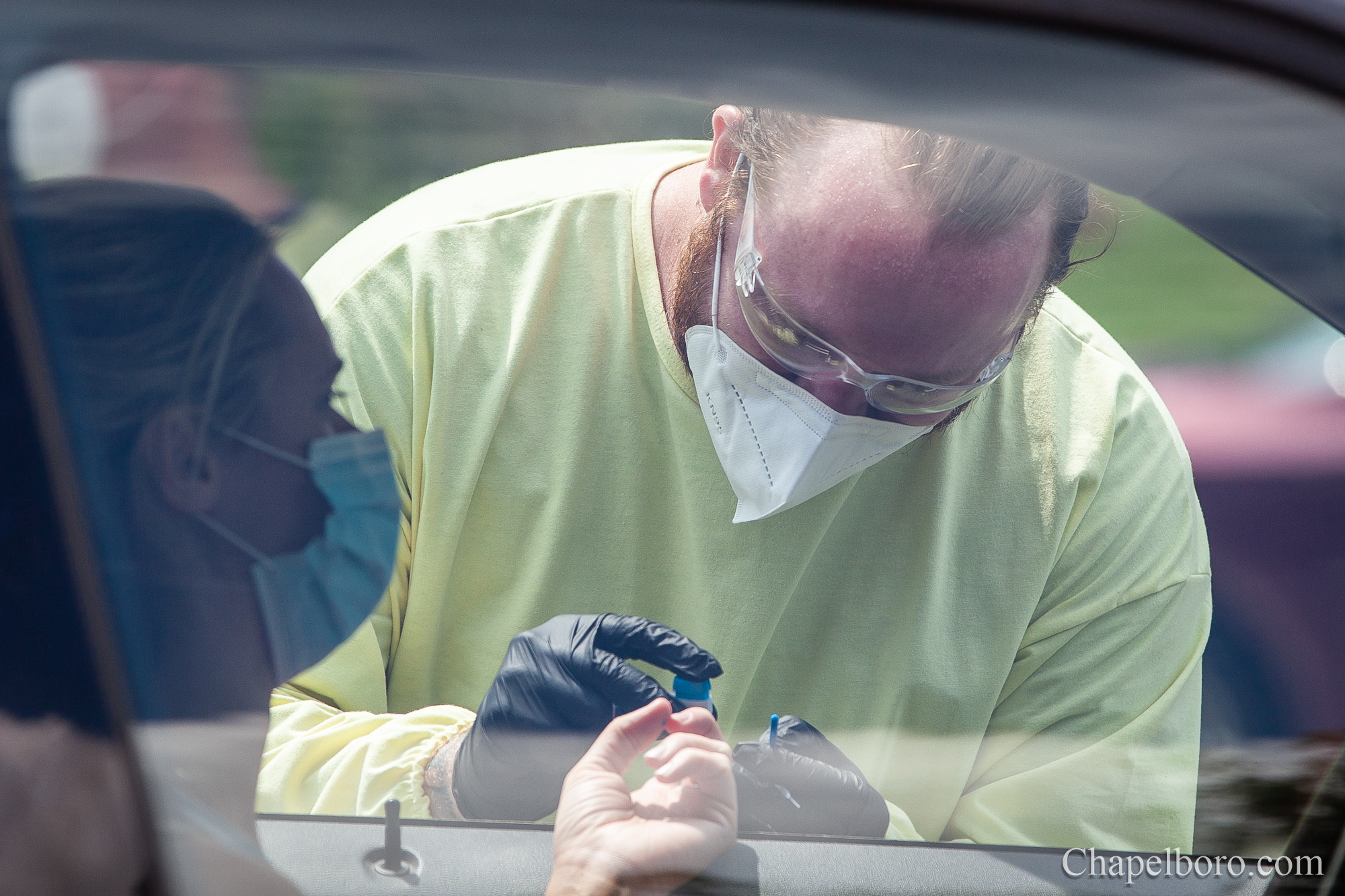
New Weekday COVID-19 Testing Available in Chapel HillA new no-cost COVID-19 testing option will now be available for Chapel Hill and Orange County residents. The Orange County Health Department announced that a new testing site will be available through OptumServe and will operate on Monday through Fridays in Chapel Hill. The testing site will be located at the R7 Parking Lot (725 Martin […]
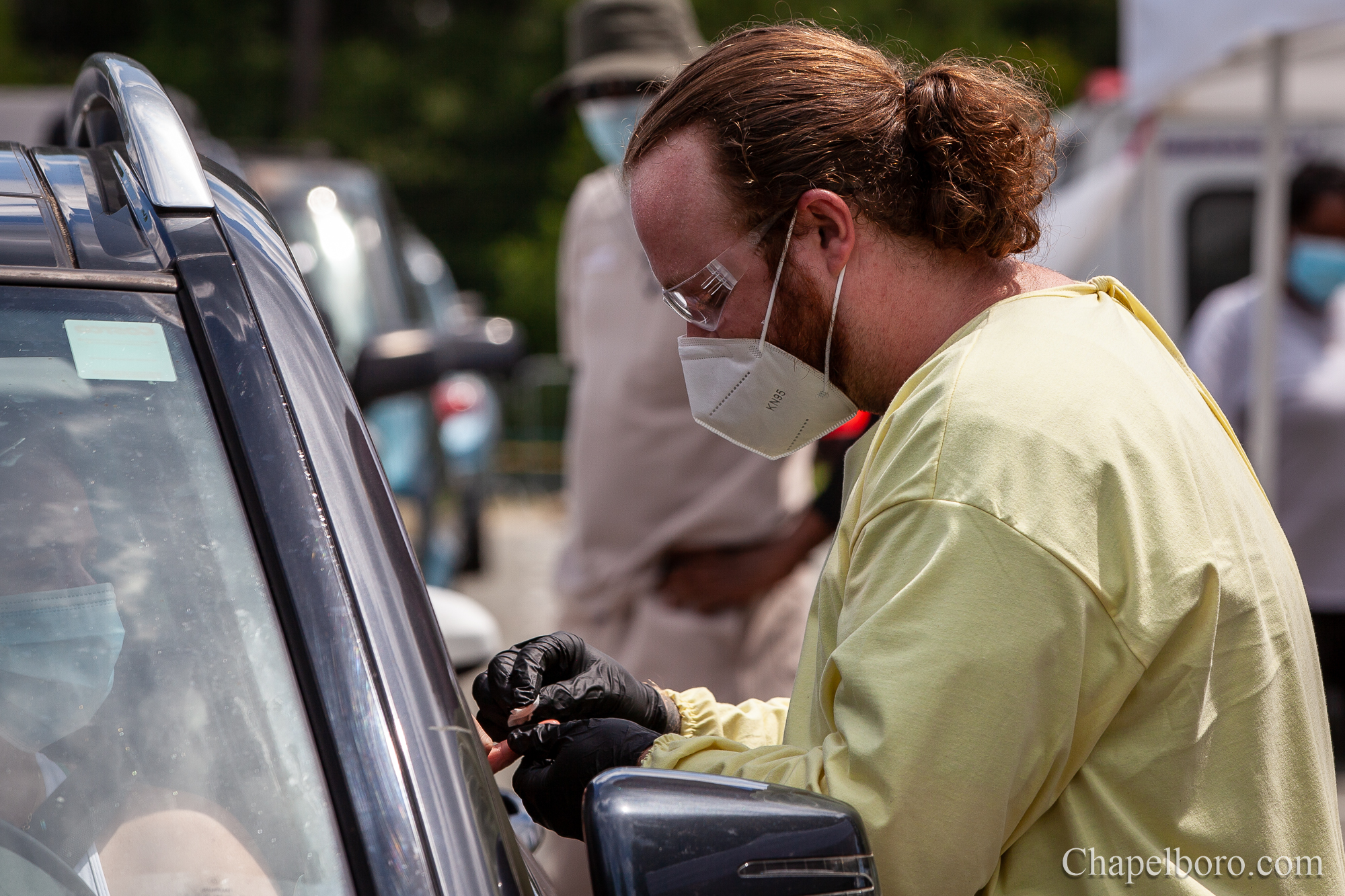
Orange County Not Hosting COVID-19 Testing on Election DayThe Orange County Health Department will not host its daily COVID-19 testing event on Election Day. The county has begun its free daily testing event — held Monday through Friday at the Whitted Building in Hillsborough from 9 a.m. to 5 p.m. However, no testing will be available on Tuesday during Election Day. WEEKDAY TESTING […]

Orange County Health Department to Offer Free Daily COVID-19 TestsBeginning next week, the Orange County Health Department will offer free COVID-19 tests to all residents who need one. Tests will be available at the Whitted Human Services Building (300 West Tryon Street, Hillsborough) from 9 a.m. to 5 p.m. each day beginning on Monday, October 26. The only day when tests will not be […]
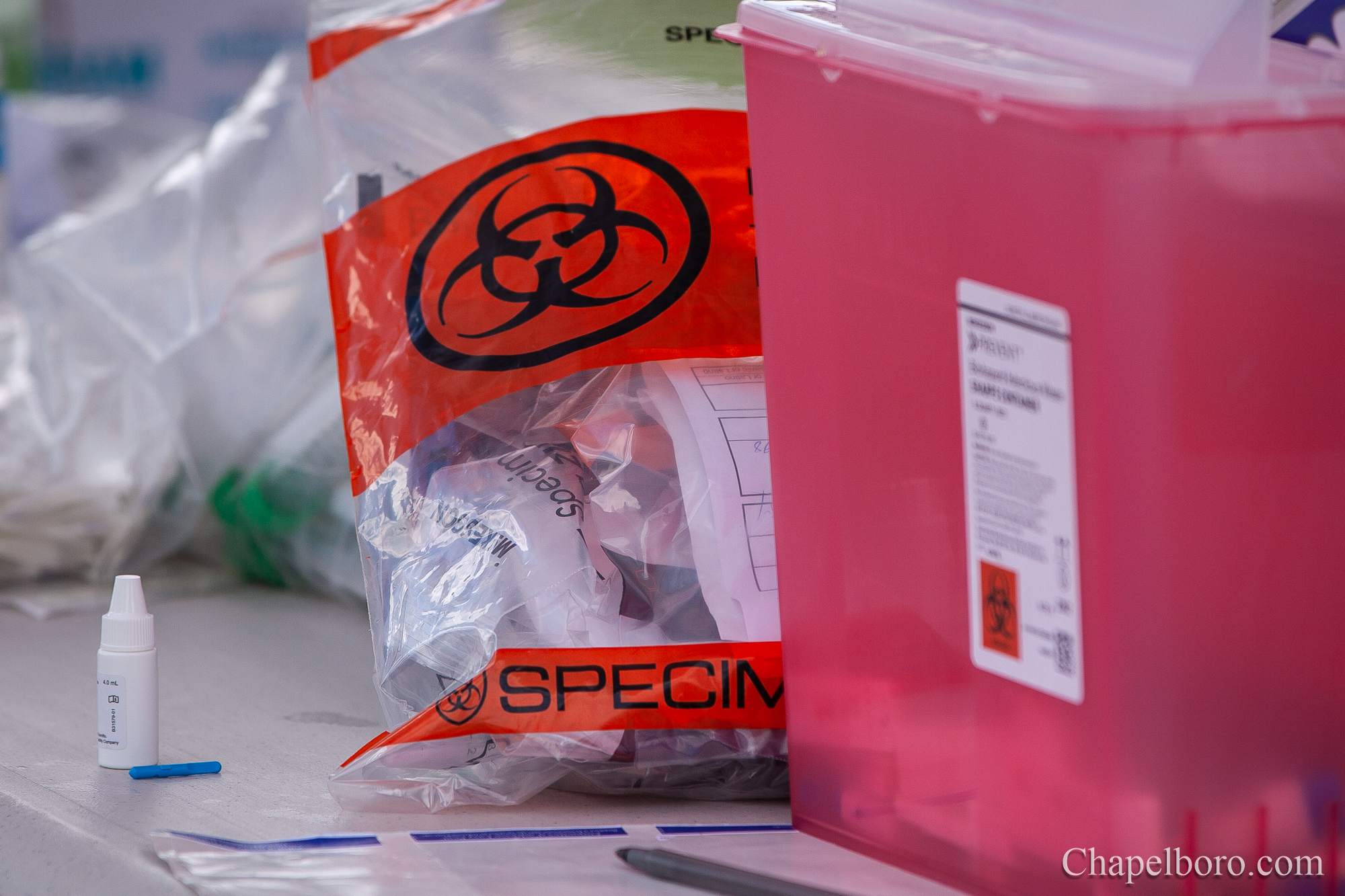
North Carolina Reports Highest Single-Day Increase in COVID-19 CasesNorth Carolina reported 2,532 new coronavirus cases on Thursday — the highest single-day increase in cases since the pandemic began. Data from North Carolina Health and Human Services revealed the increase, marking a new high as North Carolina has seen recent steep increases in positive COVID-19 cases. The department reports the state has experienced an increase […]
›

